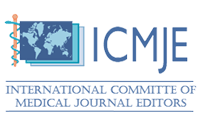СУБЪЕКТИВНЫЙ ВОЗРАСТ И СУБЪЕКТИВНАЯ ОЦЕНКА ЗДОРОВЬЯ ЖЕНЩИН С РАКОМ МОЛОЧНОЙ ЖЕЛЕЗЫ
Аннотация
Данная статья посвящена результатам исследования взаимосвязи субъективного возраста и субъективной оценки здоровья среди женщин с раком молочной железы на разных стадиях заболевания. Анализ литературы показал, что субъективный возраст выступает в качестве предиктора смерти, психологического благополучия, оценки жизненной перспективы (близости смерти), возможности совладания с тяжелой травматической ситуацией (онкологическим заболеванием. В исследовании принимали участие 170 женщин в возрасте от 31 года до 85 лет (средний возраст 56,5) с диагнозом рак молочной железы на разной стадии заболевания. Обобщая полученные данные, следует указать, что женщины, чувствующие себя значительно моложе своего паспортного возраста, адресуются к собственным ресурсам и в целом их субъективные оценки здоровья указывают в большей степени на ролевое функционирование, связанное с эмоциональным состоянием, и на общую оценку психического здоровья. Женщины с адекватным представлением о субъективном возрасте испытывают проблемы с ролевым функционированием, связанным с физическим состоянием, так же, как и женщины, чувствующие себя старше. Результаты данного исследования расширяют представления о возможных предикторах течения рака молочной железы, а также могут быть полезны при построении прогнозов течения болезни и ее исходов.
Скачивания
Литература
References
Barak B. Age identity: A cross-cultural global approach. International Journal of Behavioral Development, 2009, vol. 33, no. 1, pp. 2–11. https://doi.org/10.1177/0165025408099485
Duggan C., Dvaladze A., Rositch A. F., Ginsburg O., Yip C. H., Horton S., Camacho Rodriguez R., Eniu A., Mutebi M., Bourque J. M., Masood S., Unger-Saldaña K., Cabanes A., Carlson R. W., Gralow J. R., Anderson B. O. The Breast Health Global Initiative 2018 Global Summit on Improving Breast Healthcare Through Resource-Stratified Phased Implementation: Methods and overview. Cancer, 2020, 126 Suppl 10(Suppl 10), pp. 2339–2352. https://doi.org/10.1002/cncr.32891
Ferlay J., Ervik M., Lam F., Colombet M., Mery L., Piñeros M., Znaor A., Soerjomataram I., Bray F. Global Cancer Observatory: Cancer Today. Lyon, France: International Agency for Research on Cancer, 2020. https://gco.iarc.fr/today
Global Burden of Disease Cancer Collaboration, Fitzmaurice C, Abate D, et al. Global, regional, and National cancer incidence, mortality, years of life lost, years lived with disability, and Disability-Adjusted life-years for 29 cancer groups, 1990 to 2017: a systematic analysis for the global burden of disease study. JAMA Oncol, 2019, vol. 5(12), pp. 1749–1768. https://doi.org/10.1001/jamaoncol.2019.2996
Gurevich K.G. Fabrikant E.G. Methodological recommendations for the organization of programs for the prevention of chronic non-communicable diseases. Moscow State Medical and Dental University, 2008. URL: http://bono-esse.ru/blizzard/RPP/M/ORGZDRAV/Orgproga/org_proga.html
Hoffman Y.S., Shrira A., Cohen-Fridel S. et al. Posttraumatic stress disorder symptoms as a function of the interactive effect of subjective age and subjective nearness to death. Personality and Individual Differences, 2016, vol. 102, pp. 245–251. https://doi.org/10.1016/J.PAID.2016.07.017
Klimova M.O., Tsiring D.A. Personal helplessness as a factor of the course of the disease in oncological diseases (theoretical analysis). Azimuth of Scientific Research: Pedagogy and Psychology, 2020, vol. 9, no. 1 (30), pp. 362–366. https://doi.org/10.26140/anip-2020-0901-0088
Lillberg K., Verkasalo P.K., Kaprio J. et al. Stress of daily activities and risk of breast cancer: prospective cohort study in Finland. International Journal of Cancer, 2001, vol. 91, no. 6, pp. 888–893. https://doi.org/10.1002/1097-0215(200002)9999:9999<::aid-ijc1138>3.0.co;2-d
Sergienko E.A. Subjective age as a predictor of the course of a serious illness. Bulletin of the Russian State University for the Humanities. The series "Psychology. Pedagogy. Education", 2020, vol. 1, pp. 25–39. https://doi.org/10.28995/2073-6398-2020-1-25-39
Sergienko E.A. The role of subjective age in the regulation of vital activity. In A.L. Zhuravlev, N.V. Tarabrina, E.A. Sergienko, N.E. Harlamenkova (eds.) Psychology of Everyday and Traumatic Stress: Threats, Consequences and Coping. Moscow: Publ. of Institute of Psychology, 2016, pp. 50–84.
Sergienko E.A., Tsiring D.A., Pakhomova Y.N., Ponomareva I.V. Subjective Age of Women with Breast Cancer in the System of Psychological Factors. Klinicheskaia i spetsial'naia psikhologiia [Clinical Psychology and Special Education], 2022, vol. 11, no. 1, pp. 67–89. https://doi.org/10.17759/cpse.2022110104
Shrira A., Hoffman Y., Bodner E. et al. COVID-19-related loneliness and psychiatric symptoms among older adults: the buffering role of subjective age. The American Journal of Geriatric Psychiatry, 2020, vol. 28, no. 11, pp. 1200–1204. https://doi.org/10.1016/j.jagp.2020.05.018
Statistics of breast cancer in the world and Russia. URL: https://www.oncoforum.ru/o-rake/statistika-raka/statistika-raka-molochnykh-zhelez-v-mire-i-rossii.html
Stephan Y., Sutin A.R., Terracciano A. Subjective Age and Mortality in Three Longitudinal Samples. Psychosomatic Medicine, 2018, vol. 80, no. 7, pp. 10–23. https://doi.org/10.1097/PSY.0000000000000613
Stephan Y., Sutin A.R., Terracciano A. Younger subjective age is associated with lower C-reactive protein among older adult. Drain, Behavior and Immunity, 2015, vol. 43, pp. 33–36. https://doi.org/10.1016/j.bbi.2014.07.019
Tarabrina N.V., Vorona O.A., Kurchakova M.S., Padun M.A., Shatalova N.E. Oncopsychology. Post-traumatic stress in breast cancer patients. Moscow: Publ. of Institute of Psychology, 2010, 175 p.
Ware J.E.J., Kosinski M., Keller S.D. SF-36 physical and mental health summary scale: a user’s manual. Boston, MA: The Health Institute, New England Medical Centre, 1994, 316 p.
Список литературы
Barak B. Age identity: A cross-cultural global approach // International Journal of Behavioral Development, 2009, vol. 33, no. 1, pp. 2–11. https://doi.org/10.1177/0165025408099485
Duggan C., Dvaladze A., Rositch A. F., Ginsburg O., Yip C. H., Horton S., Camacho Rodriguez R., Eniu A., Mutebi M., Bourque J. M., Masood S., Unger-Saldaña K., Cabanes A., Carlson R. W., Gralow J. R., Anderson B. O. The Breast Health Global Initiative 2018 Global Summit on Improving Breast Healthcare Through Resource-Stratified Phased Implementation: Methods and overview // Cancer, 2020, 126 Suppl 10(Suppl 10), pp. 2339–2352. https://doi.org/10.1002/cncr.32891
Ferlay J., Ervik M., Lam F., Colombet M., Mery L., Piñeros M., Znaor A., Soerjomataram I., Bray F. Global Cancer Observatory: Cancer Today. Lyon, France: International Agency for Research on Cancer, 2020. https://gco.iarc.fr/today
Global Burden of Disease Cancer Collaboration, Fitzmaurice C, Abate D, et al. Global, regional, and National cancer incidence, mortality, years of life lost, years lived with disability, and Disability-Adjusted life-years for 29 cancer groups, 1990 to 2017: a systematic analysis for the global burden of disease study // JAMA Oncol., 2019, vol. 5(12), pp. 1749–1768. https://doi.org/10.1001/jamaoncol.2019.2996
Гуревич К.Г., Фабрикант Е.Г. Методические рекомендации по организации программ профилактики хронических неинфекционных заболеваний. ГОУ ВПО Московский государственный медико-стоматологический университет. 2008. URL: http://bono-esse.ru/blizzard/RPP/M/ORGZDRAV/Orgproga/org_proga.html
Hoffman Y.S., Shrira A., Cohen-Fridel S. et al. Posttraumatic stress disorder symptoms as a function of the interactive effect of subjective age and subjective nearness to death // Personality and Individual Differences. 2016, vol. 102, pp. 245–251. https://doi.org/10.1016/J.PAID.2016.07.017
Климова М.О., Циринг Д.А. Личностная беспомощность как фактор течения болезни при онкозаболеваниях (теоретический анализ) // Азимут научных исследований: педагогика и психология. 2020. Т. 9. № 1 (30). C. 362–366. https://doi.org/10.26140/anip-2020-0901-0088
Lillberg K., Verkasalo P.K., Kaprio J. et al. Stress of daily activities and risk of breast cancer: prospective cohort study in Finland // International Journal of Cancer, 2001, vol. 91, no. 6, pp. 888–893. https://doi.org/10.1002/1097-0215(200002)9999:9999<::aid-ijc1138>3.0.co;2-d
Сергиенко Е.А. Субъективный возраст как предиктор течения тяжелой болезни // Вестник РГГУ. Серия «Психология. Педагогика. Образование». 2020. № 1. С. 25–39. https://doi.org/10.28995/2073-6398-2020-1-25-39
Сергиенко Е.А. Роль субъективного возраста в регуляции жизнедеятельности // Психология повседневного и травматического стресса: угрозы, последствия и совладание / Под ред. А.Л. Журавлева, Н.В. Тарабриной, Е.А. Сергиенко, Н.Е. Харламенковой. М.: изд-во «Институт психологии РАН», 2016. С. 50–84.
Сергиенко Е.А., Циринг Д.А., Пахомова Я.Н., Пономарева И.В. Субъективный возраст женщин с раком молочной железы в системе психологических факторов // Клиническая и специальная психология. 2022. Т. 11. № 1. С. 67–89. https://doi.org/10.17759/cpse.2022110104
Shrira A., Hoffman Y., Bodner E. et al. COVID-19-related loneliness and psychiatric symptoms among older adults: the buffering role of subjective age // The American Journal of Geriatric Psychiatry, 2020, vol. 28, no. 11, pp. 1200–1204. https://doi.org/10.1016/j.jagp.2020.05.018
Statistics of breast cancer in the world and Russia. URL: https://www.oncoforum.ru/o-rake/statistika-raka/statistika-raka-molochnykh-zhelez-v-mire-i-rossii.html
Stephan Y., Sutin A.R., Terracciano A. Subjective Age and Mortality in Three Longitudinal Samples // Psychosomatic Medicine, 2018, vol. 80, no. 7, pp. 10–23. https://doi.org/10.1097/PSY.0000000000000613
Stephan Y., Sutin A.R., Terracciano A. Younger subjective age is associated with lower C-reactive protein among older adult // Drain, Behavior and Immunity, 2015, vol. 43, pp. 33–36. https://doi.org/10.1016/j.bbi.2014.07.019
Тарабрина Н.В., Ворона О.А., Курчакова М.С. и др. Онкопсихология. Посттравматический стресс у больных раком молочной железы. М.: изд-во «Институт психологии РАН», 2010. 175 с.
Ware J.E.J., Kosinski M., Keller S.D. SF-36 physical and mental health summary scale: a user’s manual. Boston, MA: The Health Institute, New England Medical Centre, 1994. 316 p.
Просмотров аннотации: 181 Загрузок PDF: 165
Copyright (c) 2023 Elena A. Sergienko, Diana А. Tsiring, Yana N. Pakhomova, Irina V. Ponomareva

Это произведение доступно по лицензии Creative Commons «Attribution-NonCommercial-NoDerivatives» («Атрибуция — Некоммерческое использование — Без производных произведений») 4.0 Всемирная.






















































